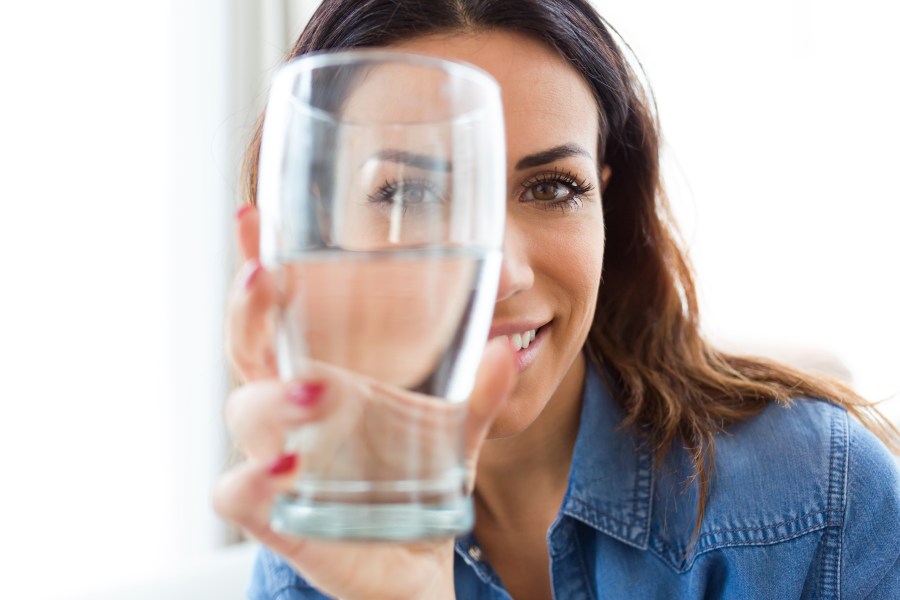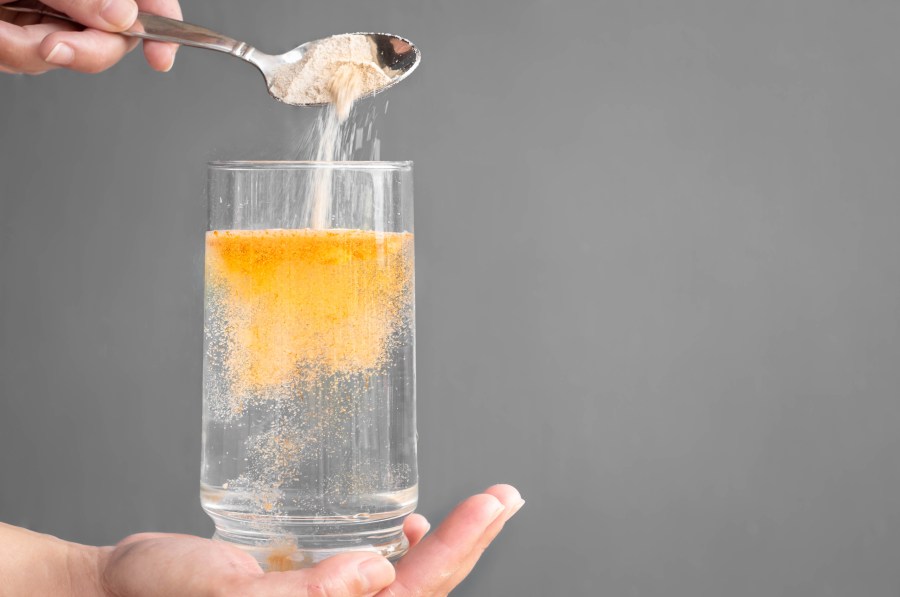Have you ever felt lethargic, dizzy, or experienced headaches for no apparent reason? If so, you may be experiencing dehydration, a condition where your body lacks the necessary amount of fluids to function properly.
Dehydration can be a silent danger that lurks in everyday life, and can have serious consequences if left untreated. In this article, we will explore the causes, signs, and consequences of dehydration, and provide tips on how to prevent and treat this common condition.
Firstly, let’s discuss the causes of dehydration. The most obvious cause is inadequate fluid intake. Our bodies require a certain amount of water to function properly, and if we don’t drink enough fluids, we can become dehydrated. It is important to note that not all fluids are created equal, and some may actually contribute to dehydration. For example, beverages that contain caffeine, such as coffee and soda, can act as diuretics, causing our bodies to lose fluids more quickly.

Excessive sweating is another cause of dehydration, and is commonly experienced during exercise or in hot weather. When we sweat, we lose fluids and electrolytes, which can lead to dehydration if we don’t replenish them. Medical conditions that cause fluid loss, such as diarrhea and vomiting, can also contribute to dehydration. Additionally, consumption of diuretic substances such as alcohol and certain medications can increase our risk of becoming dehydrated.
So, how can we tell if we are dehydrated? The signs and symptoms of dehydration can vary from person to person, but there are some common ones to look out for.
Thirst is often the first sign of dehydration, and is our body’s way of telling us that we need to drink more fluids. Dry mouth and throat, headaches, and dizziness are also common symptoms of dehydration. In more severe cases, you may experience fatigue, weakness, or dark yellow urine.
If left untreated, dehydration can have serious consequences. Impaired cognitive function is one of the most common consequences of dehydration, and can manifest as difficulty concentrating or memory problems. Dehydration can also increase our risk of heat exhaustion and heatstroke, especially during exercise or in hot weather.
Kidney problems and urinary tract infections can also occur when we become dehydrated, as our bodies need water to flush out waste products. Constipation and other digestive issues can also arise when we don’t drink enough fluids.
Fortunately, there are many ways to prevent dehydration. Drinking enough fluids is the most important step in preventing dehydration. The amount of water we need to drink each day can vary depending on our age, weight, and activity level, but a general rule of thumb is to drink at least eight 8-ounce glasses of water per day.
Monitoring fluid intake during exercise and in hot weather is also important, as we may need to drink more fluids to compensate for sweat loss. Avoiding diuretic substances, such as alcohol and caffeine, can also help prevent dehydration. Eating water-rich foods, such as fruits and vegetables, can also contribute to our fluid intake.
If you do experience dehydration, there are steps you can take to treat it. Drinking water or fluids that contain electrolytes, such as sports drinks or coconut water, can help replenish the fluids and electrolytes lost during dehydration.

Resting in a cool, shaded area is also important, especially if you are experiencing heat exhaustion or heatstroke. If you are experiencing severe dehydration, it is important to seek medical attention as soon as possible.
Dehydration and Skin Health
Dehydration can have a significant impact on skin health, as the skin is the body’s largest organ and is highly dependent on adequate hydration. When the body is dehydrated, it prioritizes water for other vital organs, which means the skin may not receive enough hydration to stay healthy and supple.
One of the most noticeable effects of dehydration on the skin is dryness. When the body is dehydrated, it may not produce enough sebum, the natural oil that keeps the skin moisturized. This can cause the skin to become dry, flaky, and itchy, and can even lead to cracking and peeling.
Dehydration can also make the skin look dull and tired. When the body is dehydrated, it may not be able to flush out toxins and waste products as efficiently, which can lead to a buildup of impurities in the skin. This can cause the skin to look dull and tired, with a lackluster complexion and a rough texture.
In addition to these cosmetic effects, dehydration can also lead to more serious skin problems. For example, dehydration can make the skin more susceptible to sun damage, as it reduces the skin’s natural defense mechanisms. This can increase the risk of sunburn, premature aging, and even skin cancer.
On the other hand, staying properly hydrated can have numerous benefits for skin health. Drinking enough water and fluids can help to flush toxins and waste products out of the body, which can lead to clearer, brighter skin. It can also help to maintain the skin’s natural elasticity, which can reduce the appearance of fine lines and wrinkles.
Furthermore, staying hydrated can help to reduce the risk of skin infections, such as acne, eczema, and psoriasis. When the skin is properly hydrated, it is better able to protect itself from harmful bacteria and other pathogens, which can help to prevent these common skin problems.
Maintaining proper hydration is crucial for healthy skin. Dehydration can have a wide range of negative effects on skin health, including dryness, dullness, and an increased risk of sun damage and skin infections. On the other hand, staying properly hydrated can help to promote clear, bright, and healthy-looking skin, while also reducing the risk of skin problems. Therefore, it is important to prioritize hydration as part of a comprehensive skincare routine.
Technology and Hydration

With the rise of technology, there are now many tools available to help people stay hydrated. Hydration tracking apps and smart water bottles are just two examples of how technology is being used to promote healthy hydration habits.
Hydration tracking apps are apps that can be downloaded onto a smartphone or other mobile device. These apps allow users to track their daily water intake, set reminders to drink more water, and monitor their overall hydration levels. Some apps also offer personalized recommendations based on factors such as age, gender, weight, and activity level.
One popular example of a hydration tracking app is WaterMinder, which allows users to set daily hydration goals and track their progress over time. The app also offers customizable reminders and notifications to help users stay on track with their hydration goals.
Another example is MyFitnessPal, which is primarily a calorie tracking app, but also allows users to log their water intake and track their overall hydration levels. The app offers personalized recommendations based on the user’s individual needs, and can be synced with a variety of fitness trackers and other health apps.
Smart water bottles, on the other hand, are physical water bottles that are designed to help users stay hydrated. These bottles are equipped with sensors and other technology that can track the user’s water intake and provide personalized reminders and recommendations.
One example of a smart water bottle is Hidrate Spark, which uses sensors and Bluetooth technology to track the user’s water intake and sync with a companion app. The app offers personalized hydration goals, reminders, and notifications, and can also track the user’s progress over time.
Another example is HydraCoach, which is a smart water bottle that features a built-in LCD screen that displays the user’s hydration levels and progress toward their daily water intake goals. The bottle also offers personalized recommendations based on the user’s individual needs and preferences.
Hydration tracking apps and smart water bottles can be useful tools for people looking to stay hydrated and maintain healthy hydration habits. These technologies can provide personalized recommendations and reminders, track progress over time, and help users stay on track with their hydration goals. However, it is important to note that these tools should be used in conjunction with other healthy habits, such as drinking water regularly throughout the day and listening to the body’s natural thirst signals.
More Resources
Here are some resources for readers who want to learn more about staying hydrated and maintaining overall health and wellness:
- Centers for Disease Control and Prevention (CDC) – This government website provides information and resources on a wide range of health topics, including hydration and water intake. The site includes tips for staying hydrated, as well as information on the benefits of hydration for overall health and wellness.
- National Institutes of Health (NIH) – The NIH is a government organization that conducts and supports research on a wide range of health topics. The NIH website includes a wealth of information on hydration and water intake, including links to relevant scientific studies and resources for staying hydrated.
- Mayo Clinic – The Mayo Clinic is a nonprofit medical center that provides information and resources on a wide range of health topics. The Mayo Clinic website includes information on the benefits of hydration, as well as tips for staying hydrated and maintaining overall health and wellness.
- The Nutrition Source – The Nutrition Source is a website maintained by the Harvard T.H. Chan School of Public Health, and provides information and resources on nutrition and health. The site includes information on the benefits of hydration, as well as tips for staying hydrated and maintaining overall health and wellness.
- NutritionFacts.org – NutritionFacts.org is a non-profit organization that provides evidence-based information on nutrition and health. The site includes videos and articles on hydration and water intake, as well as other topics related to health and wellness.
Dehydration is a common condition that can have serious consequences if left untreated. By understanding the causes, signs, and consequences of dehydration, and by taking steps to prevent and treat it, we can ensure that our bodies stay properly hydrated and functioning at their best.







